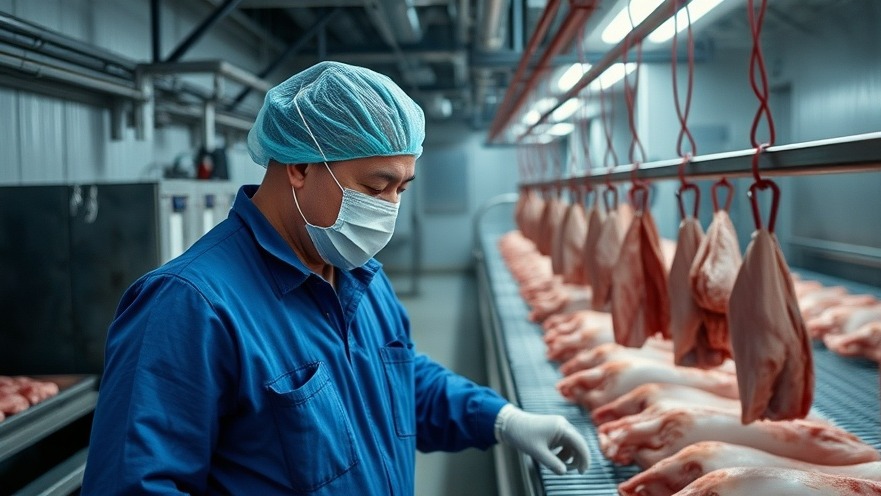
The Labor Crunch: A Growing Concern for Wisconsin Meatpackers
The meatpacking industry in Wisconsin is currently grappling with a daunting labor shortage, a situation exacerbated by recent government actions regarding migrant workers. As recent orders led to a significant number of these workers returning to their home countries, the repercussions are being felt throughout the state's meatpacking establishments. For franchisors operating in regions reliant on this labor force, understanding the implications of these changes is crucial for maintaining operational efficiency and brand consistency across their franchises.
Why Migrant Workers Are Essential
Migrant workers play an indispensable role in the meatpacking industry, often taking on jobs that are challenging to fill due to their demanding nature and the physical requirements involved. In many cases, these workers bring valuable skills and a strong work ethic that help keep production lines moving. With a diminishing supply of labor, franchisors must consider how this gap could impact not just their immediate operations, but also the overall performance metrics of their franchises.
Parallel Examples: Other Industries Facing Labor Shortages
Wisconsin's meatpacking troubles mirror issues seen in other sectors, such as agriculture and hospitality, that heavily rely on migrant workers. For instance, the agricultural sector faced similar challenges during the pandemic when travel restrictions hindered the flow of seasonal migrant labor. This led to crop losses and increased prices, illustrating how interconnected these sectors are. Franchisors can learn valuable lessons from these parallels about the importance of diversifying their labor strategies and investing in technology to enhance operational abilities.
Future Trends: What Lies Ahead?
Experts predict that unless there are significant changes in immigration policy or new technological innovations, labor shortages in industries like meatpacking will persist. Franchisors must stay ahead of these trends by actively exploring automation and technological integration as potential solutions. Implementing smart technologies could optimize production processes, thus mitigating impacts caused by a dwindling labor force.
Operational Excellence in Light of Labor Challenges
In facing these workforce shortages, franchisors can adopt several best practices to help maintain operational excellence. Streamlining processes, investing in employee retention strategies, and training existing staff to take on more responsibilities can provide immediate relief. Ensuring that your franchisees are managing their resources effectively will enable them to navigate these labor challenges while still achieving business growth.
What Franchisors Can Do Now
It is vital for franchisors to take proactive steps to address labor issues impacting their operations. This could include enhancing recruitment strategies, consulting on compliance with employment regulations, and considering the long-term benefits of automation. Most importantly, franchisors should maintain a strong communication channel with franchisees to ensure that they are well-equipped to adapt to the changing labor landscape. In the end, knowledge and preparedness can turn potential labor pains into a growth strategy.
As the landscape continues to evolve, remaining informed and adaptive is crucial. Franchisors must ensure that they explore innovative ways to fortify their workforce, all while maintaining the standards that ensure brand consistency. By embracing change and technology, businesses can continue to thrive in uncertain times.
 Add Row
Add Row  Add
Add 




Write A Comment